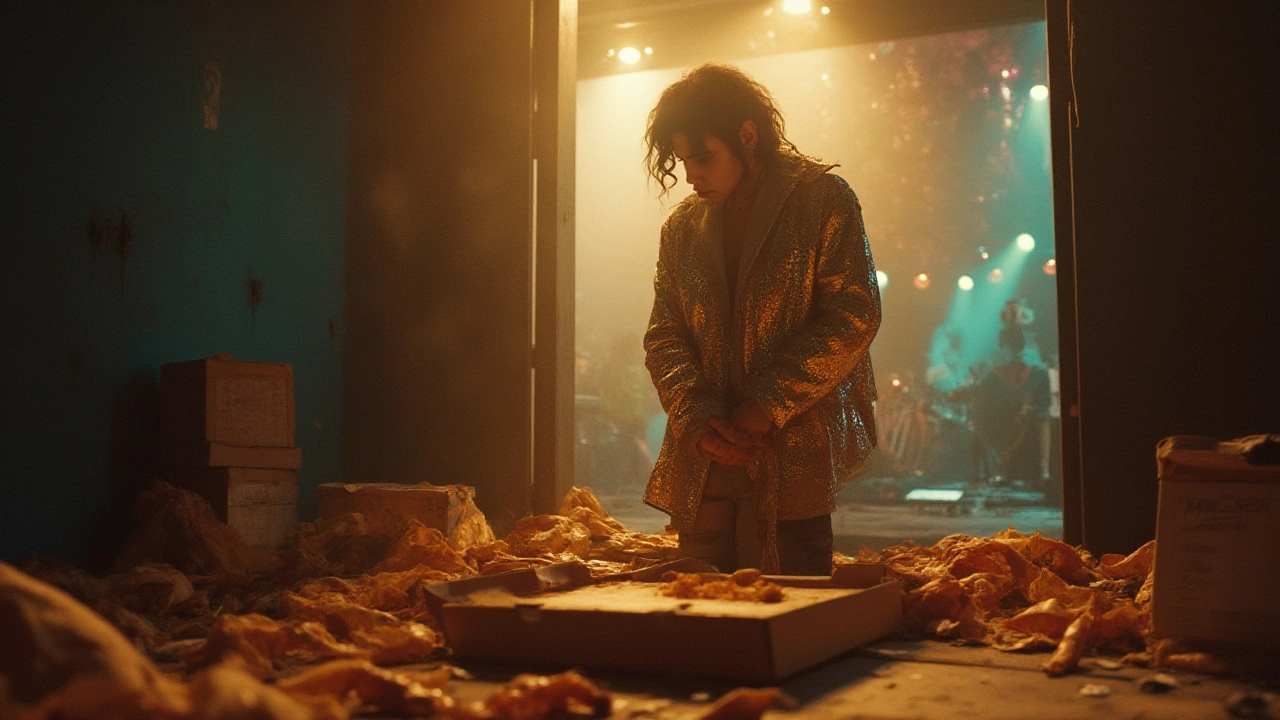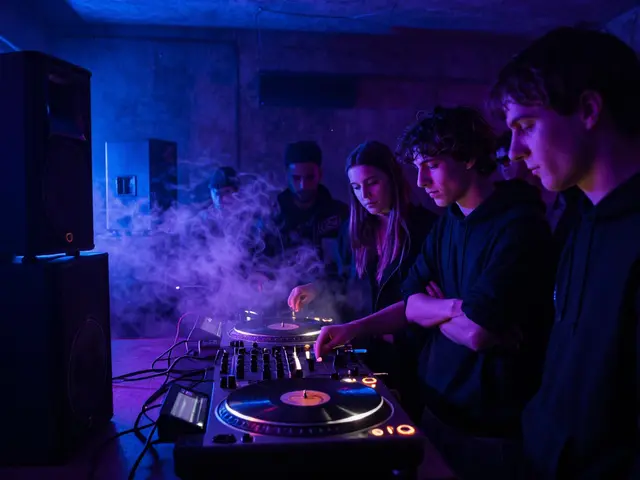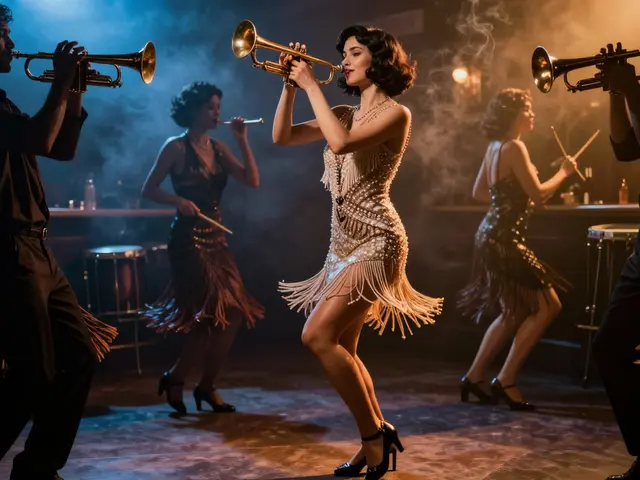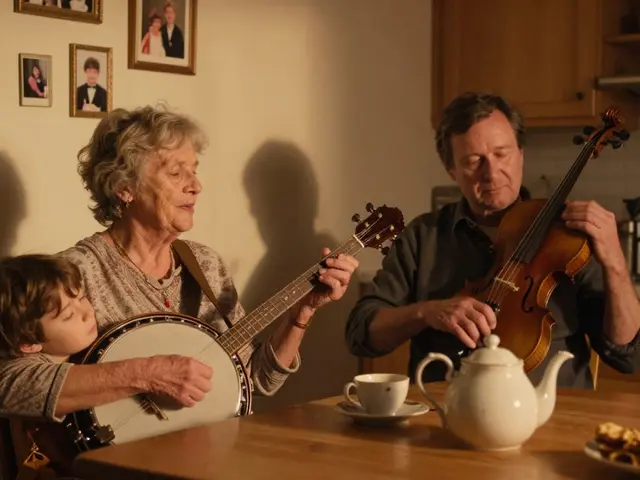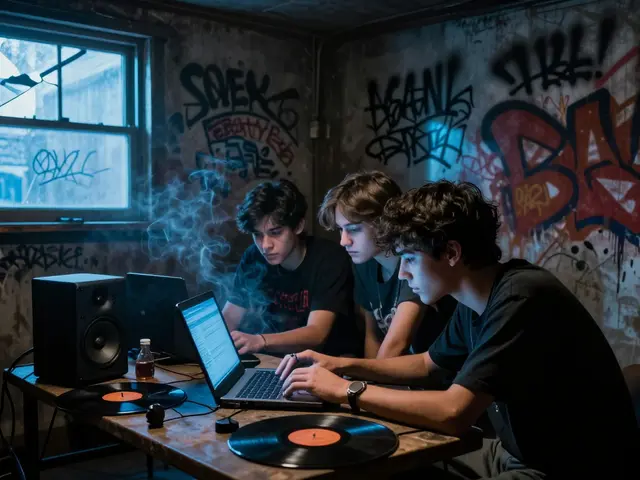Scroll through your playlist and every glossy hit might sound effortless, but the real story of pop music pulls back like a backstage curtain. Picture superstar smiles, sold-out tours, and viral dance challenges. People dream of being pop artists—but many don’t see the unpaid hours, the constant grind, or the pressure these stars face. The pop business isn’t just about catchy hooks; it’s a labyrinth of contracts, expectations, and pure hustle. Some of the biggest tracks of 2024, like Sabrina Carpenter's “Espresso” and Troye Sivan's “Honey,” were crafted through night-long writing camps and endless studio tweaks, often with creative compromise in the mix. The money moves, the personal sacrifices, and the design behind “overnight” fame? Those stories rarely make it to your feed.
The Machinery Behind Pop Hits: Where Art Meets Big Business
The factory-like energy of the modern pop industry is wild. Forget the lone genius image; these days, writing a chart-topping single involves a small army of songwriters, producers, branding agents, marketing strategists, and lawyers. Pop’s most addictive anthems, from Dua Lipa’s “Houdini” to Olivia Rodrigo’s “Vampire,” were hammered out in rooms with five, sometimes ten, creative minds at once. Labels spend tens of thousands on studio sessions, and not every potential hit makes the final album cut. According to a Rolling Stone data dive, labels invested an average of $1 million to break a new artist in 2023, factoring in promotion, production, and touring advances.
Labels own much of the game. When you sign, they may demand as much as 85% of streaming royalties. Most fans don’t realize that even global stars sometimes see only a sliver of what their songs earn. A 2023 Music Business Worldwide report showed the average per-stream payout for artists was $0.004 on Spotify; a song hitting 1,000,000 streams might earn just $4,000 in total—with artists seeing a fraction after splits with co-writers, managers, and labels. Publishing deals, sync licensing for movies or commercials, and touring merchandise are often bigger paydays for musicians than streaming itself. Some artists secretly moonlight as writers for others, chasing behind-the-scenes revenue to keep afloat while building their solo careers.
Digital platforms like TikTok have shifted the power balance somewhat, letting unsigned talents blow up overnight—but this comes with unexpected trade-offs. Labels chase TikTok stars, but their focus might stay on replicating a viral sound rather than nurturing long-term artistry. As soon as one hit drops, pressure is on to deliver the next viral moment. Even for already-established acts, the rise of AI-generated music and playlist algorithms means new singles constantly compete against a flood of similar-sounding tracks for a shot at playlist placement. A real plot twist: Some industry insiders now claim it’s easier to get signed than to stay relevant.
The pop scene is also shaped by scandals and contract battles. Take Kesha’s long legal war with producer Dr. Luke—a case that exposed the ugly side of power imbalance and contract terms in pop. Or Taylor Swift’s headline-grabbing fight over her master recordings, a reminder that even artists at the top can lose control of their work. Then there are quiet casualties: writers and session musicians whose names never appear in tiny credits, even after co-crafting chart-toppers. If you’re thinking about breaking into pop, read every contract twice, and if a deal seems too good to be true, bring a lawyer who works for you, not the label.
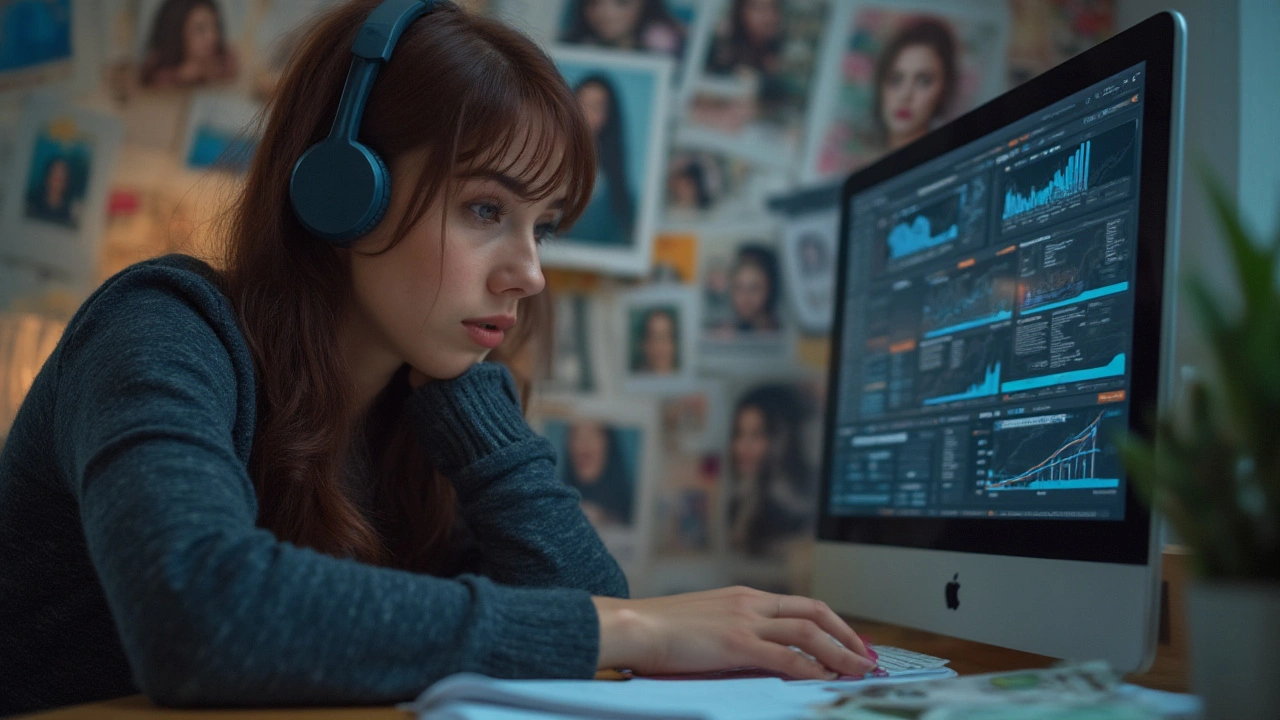
The High Cost of Stardom: Burnout, Mental Health, and Social Media Pressure
Pop music isn’t all flashing lights and fun rehearsals; it takes a toll on mental and physical health. Endless promo runs, tour schedules that cram three cities into a single weekend, and the constant demand for new content—no wonder so many pop stars talk openly about burnout and anxiety. Billie Eilish, for example, went public with depression struggles after her first breakout tour. Shawn Mendes paused his world tour in 2022, tweeting that he “hit a breaking point.” Behind that perfect makeup, even the biggest stars can feel isolated and overwhelmed.
Social media has changed the anxiety game. In 2025, an artist’s “brand” is nearly as important as their sound. Wake up, post a morning TikTok, plan a trending Reel, craft clever tweets—pop stars must keep fans engaged around the clock. Every misspelled post or offhand comment becomes a headline. The emotional whiplash can be draining; for every fan hyping you up, there’s a swarm ready to criticize everything from stage outfits to songwriting choices. Selena Gomez famously quit Instagram for a year to escape the noise, admitting her mental health improved dramatically when she left her phone alone. Some artists now hire digital managers to post for them—just to hold on to some privacy and sanity.
The pop industry’s hustle culture leads to endless competition. A manager once told a Rolling Stone reporter, “If you aren’t hustling 20 hours a day, there are ten artists ready to take your place.” That attitude pushes many into unhealthy cycles. Studies published by Help Musicians UK found that musicians report depression at rates up to three times higher than the general public. Labels have started offering mental health services, but the stigma often lingers—everyone wants to look unbreakable, afraid any sign of struggle will hurt their brand.
Touring, too, isn’t as glamorous as it looks on highlight reels. Constant travel means living out of suitcases, Jet lag becomes normal, and sleep is rare. Relationships with friends and family are put on hold. Even basic privacy vanishes—Tabloids have stalked singers’ hotel rooms and tour buses, posting every little slip-up. Loneliness creeps in fast. If you’re aiming for a pop career, remember self-care is as crucial as vocal lessons and branding, and building a support system (friends, therapists, family) matters just as much as landing a hit single.
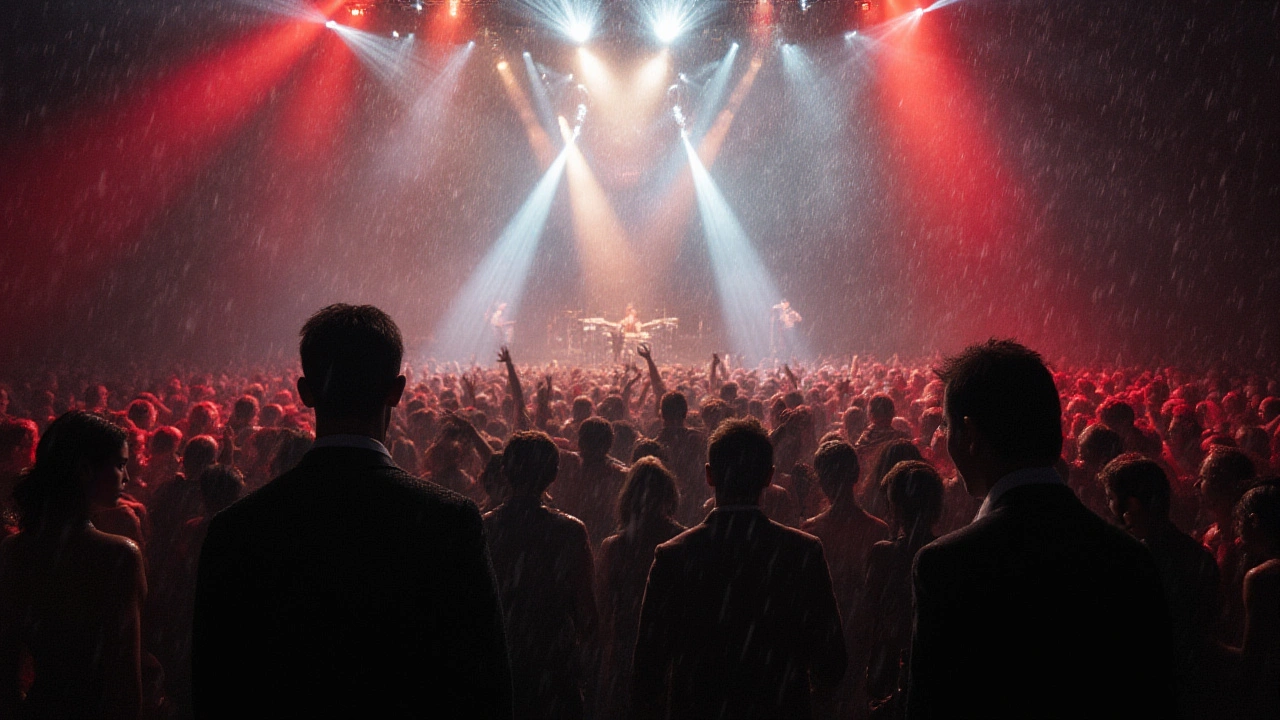
Tips for Surviving and Thriving in Pop’s Wild World
If you want a chance in the pop music game, it pays to be savvy. Talent alone won’t get you far; versatility, thick skin, and business brains will. Get to know copyright basics before sharing demos online, and understand how royalties get sliced up. Get comfortable collaborating—the biggest tracks often come from team efforts, not solo sessions. Flexibility is power, so if a song doesn’t fit your voice, try pitching it to another artist. That’s how Sia became a household name after years of ghostwriting for Rihanna, Beyoncé, and others.
Networking helps, but fake relationships won’t last. Industry mixers and songwriting camps can open doors, but the bonds made in late-night studio sessions usually matter most. Authentic friendships with producers, managers, and fellow artists protect you from isolation and keep your creative battery charged. Remember, it’s okay to stand up for your vision—a compromise might land you a radio spot, but long-term fans connect with honesty. Billie Eilish refused to “fit the mold,” flipping mainstream pop’s sound and look—now other artists follow her lead.
It’s smart to keep a close eye on your money. Many stars burn through their first big checks, not realizing paydays can vanish as quickly as they come. According to a 2024 Billboard survey, almost 60% of new artists go broke within five years unless they work with trustworthy accountants who get how label splits, touring revenue, and publishing actually work. If an offer doesn’t feel right, ask questions. The fine print in contracts can lock you in for years—and restrict what music you make outside the deal.
Watch out for the emotional rollercoaster. Celebrate your wins, but don’t tie your self-worth to chart numbers. Set personal boundaries with fans, the internet, and even your management when needed. If you feel overwhelmed, remember how many pop legends have spoken out about therapy, taking breaks, or reaching out for help. Music is meant to bring people together, not tear you apart.
| Pop Industry Stat | Figure (2024) |
|---|---|
| Avg. Label Investment to Break New Artist | $1 million |
| Spotify Avg. Artist Streaming Payout per Stream | $0.004 |
| Artists Going Broke Within 5 Years | 60% |
| Reported Depression in Musicians vs. Public | 3x Higher |
| Co-Writers on Most Top 10 Singles | 5-10 |
The pop industry brings dizzying highs, no doubt, but its unseen sides run deeper than what flashes on stage or in TikTok clips. For every viral single, there’s a crew making tough choices behind the scenes—and a star fighting to keep their head above water. If you ever dream about the pop world, keep one foot in the spotlight and the other grounded right in reality. It’s not always the dream you see on TV, but knowing the score gives you way better odds of making it last.

